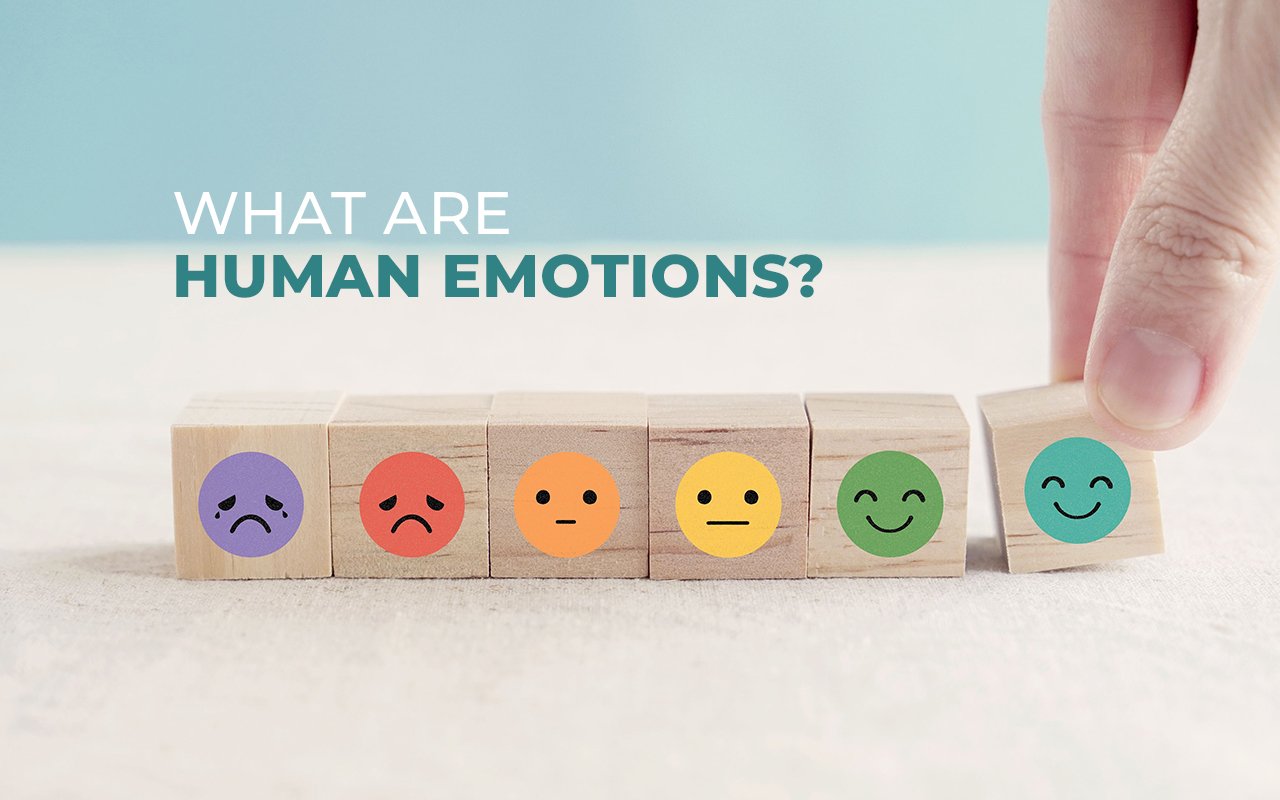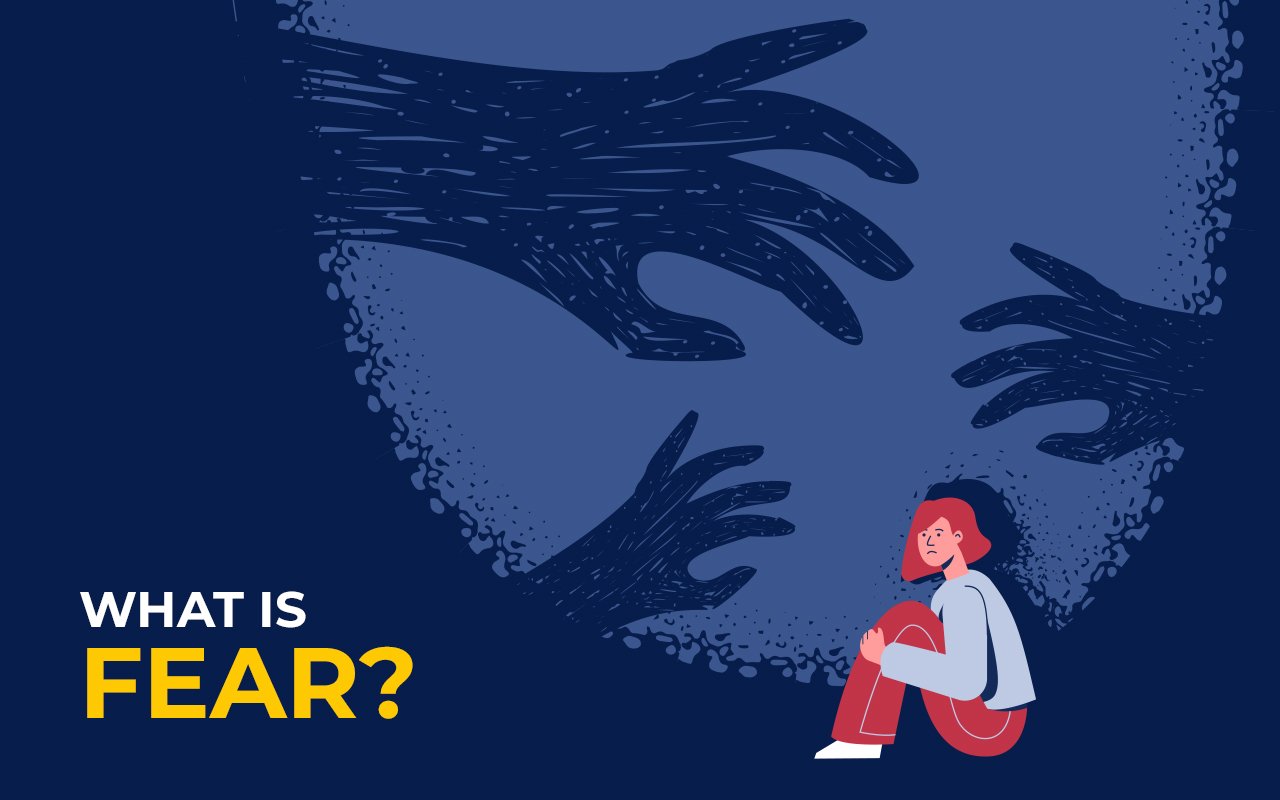The Role of Emotions in Our Lives: Recognizing and Handling Fear
We all know fear. It's that feeling in the pit of our stomach when something scares us or we feel uncertain about the future. Fear can be a potent emotion, and it can have a significant impact on our lives. This blog post will discuss fear and its role in our lives. We will also talk about the emotional scale and how to recognize and handle fear effectively without affecting our emotional well-being.
WHAT ARE HUMAN EMOTIONS?
Emotions play a significant role in our lives because they help us to understand and respond to the world around us. Human emotions are mental states that arise in response to certain stimuli. They can be positive or negative, and they can vary in intensity. There are six basic emotions which are called primary emotions. The basic emotions are happiness, sadness, fear, anger, surprise, and disgust, which we covered in this blog.
We have different ways of classifying emotions. One way is by their valence, or whether they are positive or negative. Positive emotions include happiness, love, and pride, while negative emotions include fear, anger, and sadness. Another way of classifying emotions is by their intensity. Emotions can be either high-intensity (e.g., fear) or low-intensity (e.g., contentment).
The emotional scale is a way of measuring the intensity of emotions. It ranges from 0 (no emotion) to 100 (maximum emotion). An emotional identification chart is a tool to help identify the different emotions we feel.
WHAT IS FEAR?
Fear is an emotional response to a perceived threat. It is our body's way of preparing us to deal with danger. When we fear, our heart rate increases, our breathing becomes shallow, and our muscles tense up. This response is known as the "fight-or-flight" response. Fear can be caused by many things, including real threats (like a dangerous animal) or imagined threats (like the fear of public speaking).
WHAT DOES FIGHT OR FLIGHT REPRESENT?
The "fight-or-flight" response is a natural reaction when we perceive a threat. It is an evolutionarily conserved mechanism that prepares us to confront or escape danger.
Three physiological changes characterize the "fight-or-flight" response: increased heart rate, blood pressure, and respiration. These changes increase the amount of oxygen and nutrients delivered to the muscles so that we can either fight or flee from the threat.
IS FEAR A NEGATIVE EMOTION, AND DOES IT AFFECT OUR EMOTIONAL WELL-BEING?
It is essential to address that fear is a normal and healthy emotion. It can help us stay safe in dangerous situations. However, fear can also be debilitating. We constantly live in fear, affecting our mental and physical health. Fear can lead to anxiety, depression, and other mental health disorders. It can also lead to physiological reactions such as high blood pressure and heart disease when stress hormones like cortisol (linked to Milos's cortisol blog) and adrenaline are released. Fear can undoubtedly affect our well-being and everyday life.
The body language of fear manifests mainly in facial microexpressions. Slightly raised eyebrows, a taut brow, and a half-open mouth are the primary facial expressions of fear and unmistakable signs that someone is scared.
To learn more about how stress and physiological responses affect our bodies, we highly encourage you to look at our blog, which explains it more in detail.
WHAT IS situational and psychological fear, and do they affect our mental health?
There are two types of fears and many other fears within those two.
Situational fear is the fear of a specific situation or object. It can include things like fear of flying, fear of heights, or fear of public speaking. Situational fear is often caused by a bad experience in the past or by seeing someone else have a bad experience.
Psychological fear differs from situational fear because a specific situation or object does not cause it. Our thoughts and beliefs often cause psychological fear. For example, someone with anxiety might be afraid of going outside because they fear they will have a panic attack.
Both situational and psychological fear can be debilitating. If you find that fear is negatively impacting your life, there are some things you can do to manage it and better your life satisfaction.
HOW TO HANDLE FEAR?
If you find that fear is negatively impacting your life, there are some things you can do to manage it. One of the most important things you can do is learn to recognize fear. It can be tricky because fear is often disguised as other emotions. For example, you might feel angry when you are terrified. Once you know how to identify the fear, you can start to address it.
There are many ways to deal with fear. Some people find talking to a therapist or life coach helpful. Others find that meditation and relaxation techniques help them to manage fear. Some people also find it beneficial to face their fears head-on. It might mean taking a self-defense class if you are afraid of being attacked or learning how to swim if you are fearful of water.
FEW WORDS FROM LIFE COACH ANDJELA TANASIC
"No matter what method you choose, it is important to be patient with yourself. Learning how to manage fear takes time and practice. You can contact us directly if you find that your fear negatively impacts your life. I, as your life coach, can assist you in developing a plan to deal with your fear. Perhaps one of the Mentorship Programs would be a good start for you." - Life Coach & Personal Trainer Andjela Tanasic
Learn more with UAE’s most comprehensive fitness and wellness blog:
To find out more about our services, check out:
#StayStrong #BeFortius










